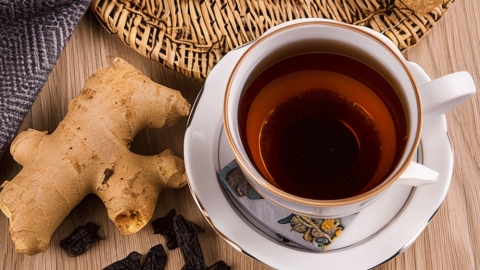Can you drink ginger soup for heatstroke?
Generally speaking, if it's mild heatstroke caused by summer heat and dampness, drinking an appropriate amount of ginger soup may be beneficial. However, if it's typical heatstroke caused by high temperatures, ginger soup is not recommended. If symptoms of discomfort appear, it is advised to closely monitor your physical condition and seek medical treatment at a regular hospital when necessary. Detailed analysis is as follows:

For mild heatstroke caused by summer heat and dampness, symptoms such as dizziness, heavy feeling in the body, nausea, and vomiting may appear after prolonged exposure to a hot and humid environment. In such cases, drinking an appropriate amount of warm ginger soup can be somewhat beneficial. Ginger is warm in nature and has a certain effect in dispelling cold and eliminating dampness, helping to remove damp pathogens from the body. Its spicy flavor can also stimulate the spleen and stomach, promote digestion, relieve nausea and other discomforts. Additionally, warm ginger soup can promote blood circulation, induce mild sweating, and help expel some dampness from the body, thereby alleviating discomfort caused by summer heat and dampness to a certain extent.
For typical heatstroke caused by high temperatures, especially severe heatstroke, symptoms often include elevated body temperature, profuse sweating, dry mouth, and a dry throat. At this time, the body is in a state of internal heat. Since ginger soup is warm in nature, its consumption might intensify the sensation of heat in the body, hinder heat dissipation, and even further raise body temperature, worsening the condition. Moreover, gastrointestinal function may be impaired during severe heatstroke, and the spiciness and irritation of ginger soup could irritate the gastrointestinal mucosa, triggering or worsening symptoms such as abdominal pain and nausea. Therefore, it is not recommended for consumption.
Even in cases of mild heatstroke caused by summer heat and dampness, ginger soup consumption should be moderate to avoid excessive intake that may lead to heatiness (excess internal heat). The temperature of the ginger soup should not be too hot to prevent burns to the digestive tract. If you are unsure about the type of heatstroke or if symptoms do not improve or even worsen after drinking ginger soup, consumption should be stopped immediately and medical attention sought. At the same time, rehydration after heatstroke should mainly involve drinking warm water, light salt water, and similar fluids. Ginger soup cannot replace standard hydration and medical treatments.






